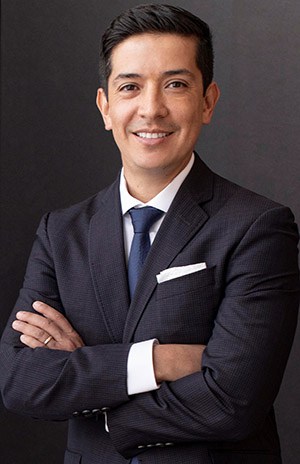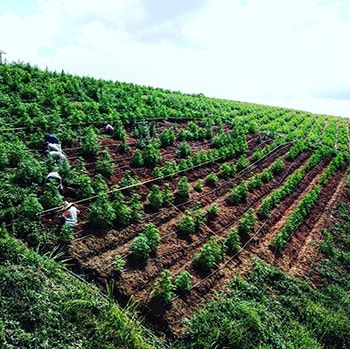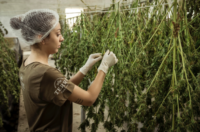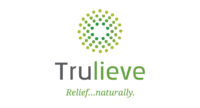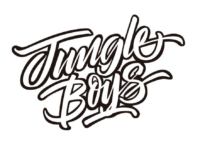By now, many in the industry are aware of the recent craze surrounding delta-8 tetrahydrocannabinol (THC), a natural component of cannabis that has burst into popularity over the past several months.
And it seems as soon as the industry has gained a solid understanding of delta-8, another THC compound has come into the spotlight: delta-10 THC.
Similar to delta-8, delta-10 is a minor cannabinoid that exists in trace amounts in hemp and cannabis, according to ACS Laboratory, a cannabis, hemp and cannabidiol (CBD) testing laboratory in Florida.
As previously reported by Hemp Grower, delta-8 is said to have a relaxing effect and produces some psychotropic effects that are believed to be less potent than delta-9.
Roger Brown, the president and founder of ACS Laboratory, describes the effects of delta-10 to be the opposite of delta-8, based on his personal experience.
“For myself, I don’t utilize or smoke marijuana, but I tried delta-8 and delta-10 products that we tested as an experiment, and for me, delta-10 had no psychoactive effects; it was more like a mood enhancer,” he says.
Erik Paulson, senior analyst at Infinite Chemical Analysis Labs, an analytical cannabis and CBD testing lab with locations in California and Michigan, says he’s heard consumers compare delta-10’s effects to sativa cannabis varieties, which are traditionally known for being energizing and uplifting, and delta-8 effects to indica varieties, which are associated with relaxation.
However, Paulson says he’s unsure if there’s any scientific evidence behind that, adding, “It could just be that the higher psychoactivity of delta-8 is causing more of a pronounced sedative effect compared to delta-10.”
At this point, Paulson and Brown both say there is some published research on delta-10, though it is minimal.
A pigeon study conducted in the 1980s by Ralph Micheolam, a cannabis research pioneer, studied the effects of delta-10 compared to delta-9 on pigeons. The study found that delta-10 may have some psychoactive effects, but the effects are much less potent than delta-9.
However, “there’s not as much known about delta-10 in terms of the psychoactivity and its effects on the human body,” Paulson says.
Where it Comes From
Like delta-8, delta-10 can be converted in a laboratory from delta-9 or CBD, Paulson says.
Delta-10 is typically produced more predominantly through extraction or converted from delta-9 through isomerization, he says. Transforming delta-9 to delta-10 (or delta-8) is possible because they have the same chemical compounds, just different structures.
According to Extraction Magazine, extractors would waste a significant amount of time and plant material trying to extract delta-10 from natural strains, so it is more likely produced via isomerization. Delta-10 appears in such small amounts that laboratories often misidentify the compound for [cannabichromene] CBC or [cannabicyclol] CBL using standard high-performance liquid chromatography (HPLC) methods.
“You can create any delta you want—delta-8, delta-9, or delta-10—by chemically altering CBD isolate or CBD crude,” David Reckles, president of Private Label Hemp Lab, a hemp testing and manufacturing lab in Florida, told ACS Laboratory. “If you’re using crude CBD, you’ll generally create the reaction through carbon and vitamin C derivatives. If you’re using an isolate, you’ll incorporate solvents and acids.”
RELATED: Understanding Delta-8-THC: Where Does It Come From?
Delta-10 vs. Delta-8 and Delta-9: Chemical Differences
Delta-10 is an isomer of delta-9, Brown says.
Paulson says when one begins to isolate delta-9 or, more commonly, convert THC to CBD, they’ll start to discover the additional isomers (or different classifications of THC).
“Really, all THC isomers chemically have the same basic structure,” he says. “It’s just the placement of one bond that differs between the different isomers.”
For example, as previously reported by Hemp Grower, “delta-8 has a double bond on the 8th carbon chain, and delta-9 has a double bond on the 9th carbon chain.”
Delta-10 follows the same pattern and has a double bond on the 10th carbon chain. And while this seems like a “small distinction, it’s enough to produce slightly different cognitive and physical effects,” Hemp Grower previously reported.
Brown says that a significant difference is delta-8 can essentially only produce one compound, whereas delta-10 can produce up to six different isomers (variations of the same compound).
“What we call delta-10 is really a mixture of two different types of compounds, and then within that, they might have different configurations,” Paulson says. “So, there’s just a lot of different compounds, and that’s one of the reasons why it’s so challenging to quantify accurately. So, in terms of psychoactivity, instead of having to test one compound, you have to test six.”
Legal Status
According to ACS Laboratory, “Delta-10 THC derived from cannabis is [federally] illegal because marijuana is a schedule 1 controlled substance. However, delta-10 derived from hemp extract exists in a legal gray zone.”
And Brown agrees, arguing that the Agriculture Improvement Act of 2018 (the 2018 Farm Bill) is very “specific to delta-9,” and if a delta-8 or delta-10 product derived from hemp contains less than 0.3% total THC (defined as delta-9 THC plus tetrahydrocannabinolic acid (THCA), its acidic version), then it’s considered “legal.”
The Drug Enforcement Administration’s (DEA) response to the 2018 Farm Bill is: “All synthetically derived tetrahydrocannabinols remain schedule 1 controlled substances.”
“So, in our mind, all tetrahydrocannabinols cannabinoids are considered federally illegal,” Paulson says. “We’re not placing a judgment on that, whether it’s right to do that or not. I just think there hasn’t been a lot of legal challenges to these laws and to that point, people keep on producing delta-8 and delta-10 products….”
More than 12 states have already begun to implement delta-8 bans, while very few states, including New York, Colorado and Alabama, have started to crack down on delta-10.
And Paulson says while delta-10 may currently be “flying under the radar,” he thinks it’s only a “matter of time” before there’s increased regulation.

